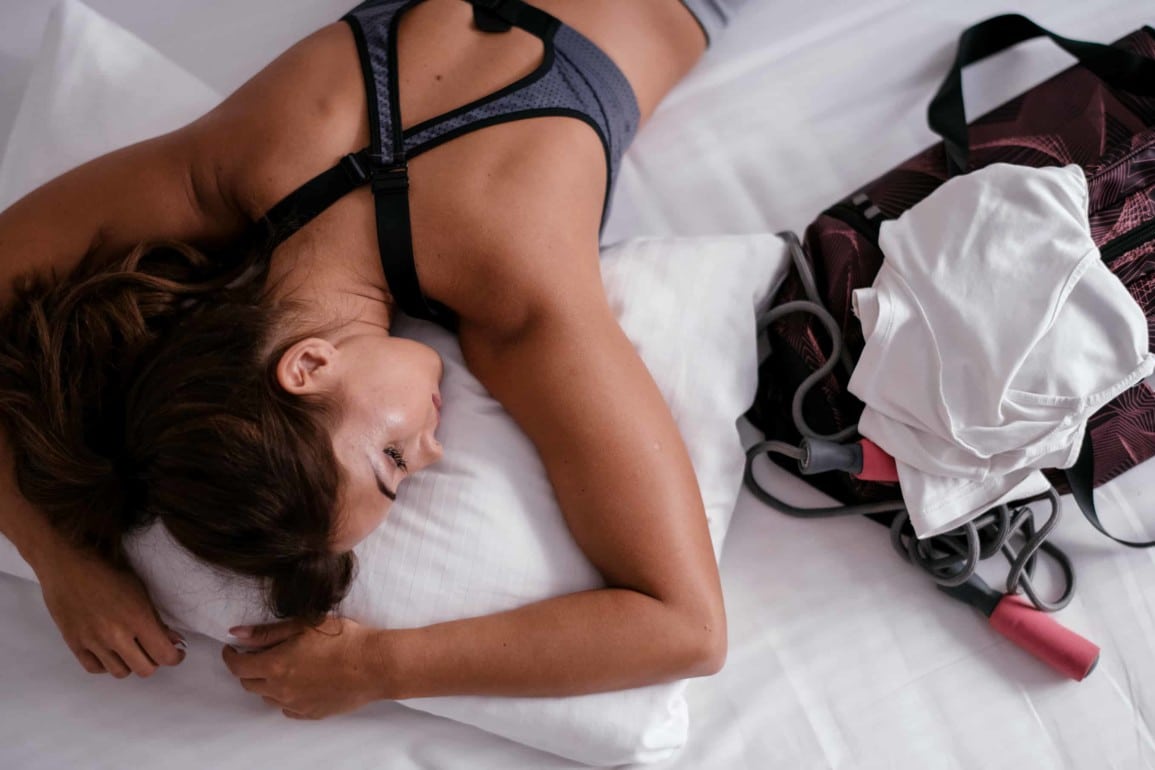Exercise and sleep go together like salt and pepper.
Properly combined, the right workout, and plenty of time in bed can be the perfect seasoning on a better quality of life.
While scientists have known for some time that exercise and sleep are the perfect partners, new research is starting to give extra depth to that connection.
Studies suggest that the link between sleeping and exercise goes both ways. The more time you spend in the gym, the more rest you need. Additionally, the more rest you need, the more time you should spend in the gym.
One report from the Sleep Medicine Journal found that spending four months on an exercise regime, insomniacs could achieve up to 85 minutes more sleep each night. That’s almost an hour and a half of extra beauty sleep.
Deeper sleep also means your muscle functions and energy stores get replenished properly each day. Then going back to the gym, or working out regularly, feels easier.
Today, we’re going to look at the close connection between sleep and exercise and discuss how the right kind of exercise can transform your sleeping patterns.

How does exercise affect sleep? The basics
If you’ve ever stumbled into bed after a long day at work, followed by an hour at the gym, you’ll already have a basic idea of how exercise improves sleep.
If you exhaust your body to the point where it craves several hours of deep recovery, then you’re likely to drift off faster.
Of course, there’s more to the link between exercise and sleep than running yourself ragged at the gym until you’re too exhausted to stay awake.
According to one article from Psychology Today, the biggest effects of exercise on sleep happen in the long-term. You don’t get the results instantly after you get home from the gym.
Like any strategy for improved sleep hygiene, you don’t get results immediately. It often takes several weeks or months for your sleep patterns to change significantly.
The good news? If you can stick to a regular routine of exercise and sleep hygiene practices, like going to bed and waking up at the same time each day, the benefits are incredible.
Not only will you fall asleep faster and stay asleep for longer, but you could potentially reduce your risk of facing significant sleep disorders too.
For instance, exercise is one of the most commonly recommended treatment options for patients with sleep apnea. There are many different kinds of sleep apnea, but one of the most common reasons for this condition is obesity.
In a study where the participants didn’t diet to change their weight but exercised more each day, the participants achieved a 25% reduction in sleep apnea symptoms within a 12-week period.
Aside from benefitting those with breathing disorders, exercise has also been shown to have an impact on other problems. For instance, restless leg syndrome, a disorder that occurs when parts of the body (including the legs) begin to move involuntarily, can benefit from exercise.
Exercising regularly may help to burn off some of the excess energy that pushes the body to engage in movement during the night, meaning that you’re more likely to stay asleep once you drift off.
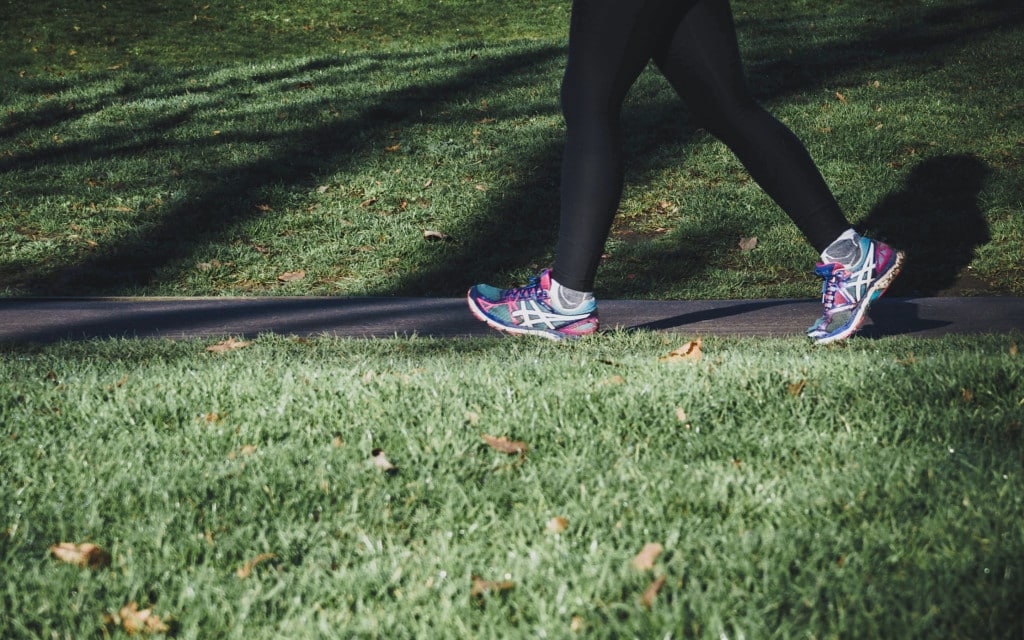
The main ways exercise improves sleep quality
So, how does exercise improve sleep?
Well, as we mentioned above, there’s the instant benefit that comes with being exhausted after you’ve worked yourself hard at the gym — but there’s a lot more to the effects of exercise on sleep.
One study published by the Sleep Medicine journal found that individuals with an average sleep time of only 6.5 hours per night increased their sleep significantly with moderate-intensity workouts.
In the study, the participants exercised four times a week and achieved a total of 75 minutes of extra sleep in total by the end of 6 weeks.
There are a number of reasons why exercise promotes better sleep in this way. For instance:
1. Cardio helps people to fall asleep
Research conducted by the National Institute of Aging discovered that people who participated in aerobic exercise (walking, cycling, etc) for up to 4 times a week reported less daytime sleepiness and better sleep quality.
What’s more, the study also discovered that aerobic activity reduced the time it took for participants to drift into their slumber by around 14%.
Simply put, getting your heart beating through the day increases your chances of settling down easily at night.
2. Exercise improves the circadian rhythm
If you’ve ever looked into treatments for sleep disorders before, you’ll know that your circadian rhythm has a big impact on the kind of rest you get.
Your circadian rhythm tells your body when it’s time to go to sleep, and when you need to be awake, alert and focused. One of the biggest things that impact your circadian rhythm, is your exposure to light.
Getting up early in the morning and exercising in natural light will help to put your internal clock back on schedule — no matter what kind of exhaustion you’re dealing with.
Exposing yourself to natural sunlight helps your body to reset itself. Because of this, you can even overcome jet-lag just by going out in the morning and soaking up the sun after a big trip.
If you’re thinking of exercising early in the morning to improve your circadian rhythm, try to make sure that you eat right the night before, and on the morning to fuel yourself correctly. Keeping dense foods to a minimum is often a good idea, so you’re less likely to feel sluggish.
3. Exercise eradicates unnecessary stress
Another way that exercise helps sleep, is to eliminate one of the biggest causes of sleep disorders: stress and anxiety.
If like many people today, you often find yourself heading to bed with the weight of the world on your shoulders, a workout could be just the thing to calm your mind.
Exercise increases the production of chemicals called “endorphins” in your body. These are the feel-good transmitters that improve your mood and reduce feelings of anxiety.
Almost any form of exercise is a valuable way to fight back against depression, anxiety, and stress. However, some people do find that repetitive and rhythmic motions in their exercise can work particularly well for sleep disturbances.
Things like yoga, cardiovascular training, or even cycling can help to relax the body or mind.
If you’re feeling particularly overwhelmed by your emotions, you don’t even need to hit the gym to benefit from the link between sleeping and exercise. Try some simple tasks in the comfort of your own home for half an hour a day instead.
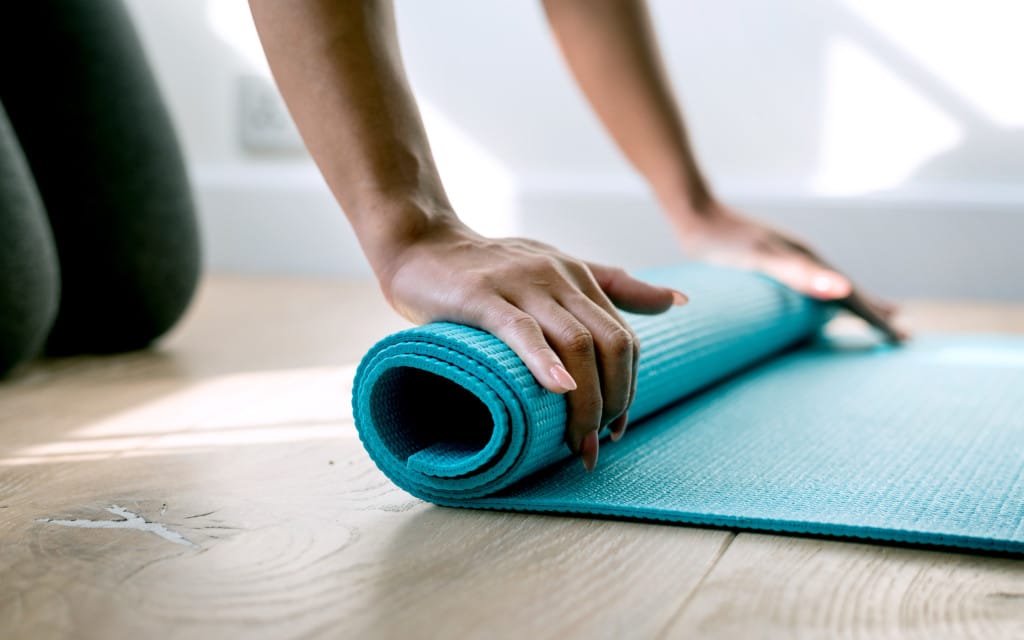
Sleeping and exercise: How much exercise do you need?
So you know that exercise and sleep are closely connected, but how do you make the most of their relationship? One option is to choose the right kind of training.
Relaxing stretches like the ones you can get from yoga are a great way to prepare your body for rest. On the other hand, some people see bigger benefits from cardiovascular activities that get their blood pumping.
Studies into sleeping and exercise recommend finding a routine that works for you and aim for around 2 and a half hours of moderate-intensity aerobic exercise each week.
For a full range of health benefits, it’s also a good idea to consider some resistance or strength training to target as many muscle groups as possible.
If you want to discover for yourself how exercise promotes better sleep, then it’s also a good idea to do most of your workout outdoors. As we mentioned above, light helps to regulate the internal body clock and improves your chances of keeping your circadian rhythm in check.
Another thing to keep in mind when you’re discovering the link between exercise and sleep is that the time of day that you do your workout may also have an impact on your results.
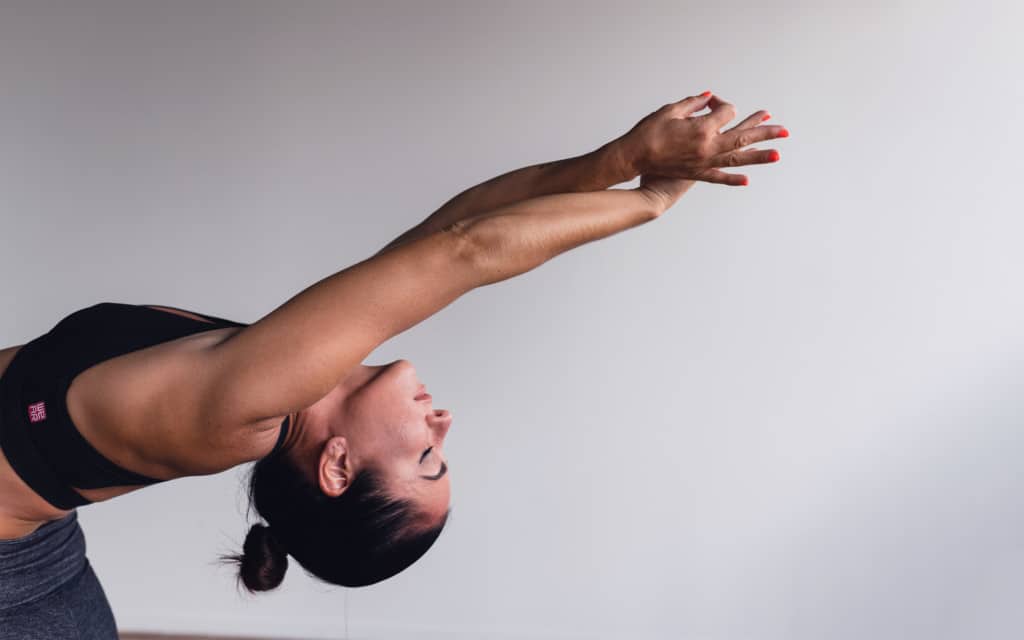
When does exercise help you sleep?
Let’s face it — we all have times when we struggle to stick to our regular schedule.
On particularly busy days, when the children have things to deal with at school, or your office is demanding more from you than you can usually give, you might not have time to fit in an early-morning workout. In those situations, your only option could be to try and fit in a workout late in the evening.
However, up until quite recently, experts have often recommended against late-night workouts, believing that increased levels of adrenaline and a higher heart rate would harm sleeping patterns, rather than improve them.
However, a study conducted by ETH Zurich in 2018 found that it may be possible to work out late and still get the benefits of exercise and sleep.
The study looked at 23 previously published reports examining the link between exercise and sleep. Drawing details from a thorough meta-analysis, the researchers found that the people who exercised within four hours of going to sleep each night showed no difference in the time taken to fall asleep.
There was also no difference in the time spent awake during the night after the person fell asleep, and no difference in any other major markers of sleep efficiency.
To put it simply, exercising before bed might not make your sleep any worse. When the researchers looked at the amount of time the participants spent in slow-wave sleep, they saw some additional benefits.
According to the meta-analysts, the study participants that did some form of exercise within four hours of going to bed spent an average 21.2% of their time in a deep sleep. The people who didn’t exercise only spent 19.9% of their slumber in short-wave sleep.
So, does exercise increase deep sleep? The answer might be yes, although further study is probably necessary.
The one exception to the rule found in this particular research was that high-intensity and vigorous exercise does worsen sleep quality.
If you’re working out to the extent that you can’t carry out a conversation with your partner an hour before going to sleep, then you might see poor results.
That’s because your heart rate is so high during your workout, you won’t have time to reach the right resting rate before you drift off. If this is the case, try finishing of your regime with some yoga poses.
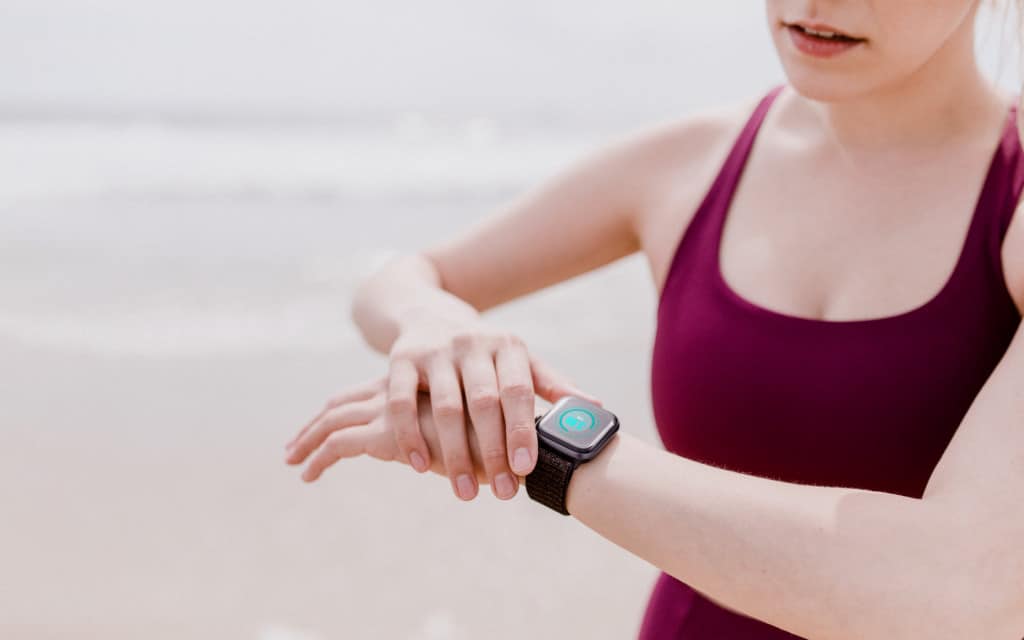
How to use the link between exercise and sleep
Now that you understand the link between sleep and practice, it’s important to make sure that you’re using it effectively.
After all, there are countless people around the world suffering from sleep disorders like insomnia today. A little extra exercise could be one of the easiest and most effective ways to overcome your sleeping problems once and for all.
What’s more, not only do the participants in studies looking at exercise and sleep say that their sleep quality improves when they exercise, but there are other benefits too.
Regular exercise contributes to reduced stress and depression, higher self-esteem, fewer weight problems, and a lower risk of various long-term illnesses. Now that you know that exercise helps sleep, here’s how you can make the most of your workout:
1. A little more exercise gives better sleep
It only takes around 30 minutes of moderate-intensity exercises per week to improve your sleep and achieve numerous other fitness benefits. In fact, you can even get by on 20 minutes per week if you’re really pushed for time. Within reason, the more exercise you can get, the better off you’re going to be.
Ultimately, increasing the amount of time that you spend working out, and the intensity of your routine will help to encourage deeper and sounder sleep, because your body will need more time to recuperate. Dial your exercise routine up a notch if you want bigger benefits. It’s as simple as that.
2. Go to bed a little earlier
Exercise improves sleep quality — but it’s not the only thing that’s going to have an impact on your slumber. A good routine is important too.
Going to bed earlier can be a good way to ensure you’re getting the right amount of sleep each night. Additionally, when you get plenty of high-quality sleep, you’re likely to feel more motivated when the time comes to begin working out.
Sleep affects your perception of how hard your workout routine actually is. If you’re super tired on a morning, you’re less likely to feel as though you’re capable of turning up at the gym and pumping iron for half an hour. However, if you wake up bright-eyed and bushy-tailed, then it’s a different story.
3. Focus on speed in the morning
Finally, remember to figure out how you should be scheduling your exercise and sleep sessions for the best results. Getting your fast-paced cardio workouts done first thing in the morning and following up with some slower strength training or stretching after work might be a good idea.
Although you can still get a good quality of sleep when you exercise an on evening, as we mentioned above, studies have found that daytime sessions are more likely to improve sleep quality than evening ones.
However, don’t forget to balance your workouts out as much as you can too. Different kinds of exercise can work together to improve your health and wellness in the long term. Diverse exercise regimes are more likely to lead to long-lasting results with your health, fitness and stress levels.
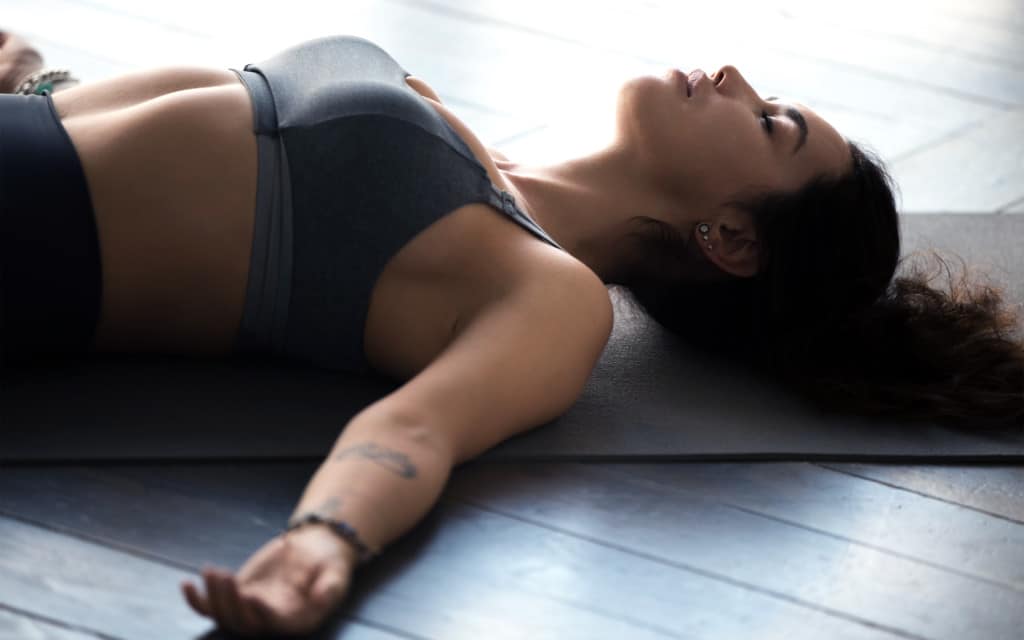
Sleep or exercise: Which is more important?
So, if the relationship between sleep and exercise is so significant, what do you do if you have to choose between one or the other?
In an ideal world, this would never be a question you need to consider. Sleeping and exercise are both crucial pillars of good health.
If you want to be mentally and physically strong, then you need to get the right amount of sleep for metabolic function and brain health. What’s more, a regular amount of high-quality sleep is critical for emotional health, cognitive performance, and more.
At the same time, we all need regular exercise if we want to be our best too. Regular physical exercise yields benefits like a better weight, reduced risk of heart conditions and so much more.
As we established above, exercise promotes better sleep too, so you could argue that you can’t have one thing without the other. The obvious link between exercise and sleep means that most experts will hesitate to say that one is more essential than the other.
However, if you’re stuck trying to decide between an extra hour in bed after you’ve had a difficult night, or going to the gym, then you should usually err on the side of sleep. Sleep is a biological need — it’s something that we absolutely have to do every day for survival.
On the other hand, while physical activity is crucial for good health, you’re less likely to see the same impact from a couple of days without exercise as you would from days without sleep.
Working out with no sleep
Heading to the gym when you’re exhausted can work against your fitness and health goals in the long-term. Muscles need sleep to build and sleep is crucial for strength training recovery.
Ideally, we should all be aiming for the perfect combination of exercise and sleep on a daily basis. If you want to stay injury-free, and get the best results out of your time at the gym, then you’ll need to make sure that you’re getting the right amount of sleep first.
Well, not all of us are great sleepers, but we still need to build some muscle…
If you’ve been struggling with sleep for a while now, start with some simple exercises as part of your daily routine. When your sleep deprivation is not chronic and you feel that it hasn’t sucked the life out of you yet, it should be fine to exercise for about 30 minutes.
Try and abstain from high-intensity, long-duration, or even heavy weight-lifting exercises. Be on the treadmill, do some walking, incorporate light weights, or even just do a short yoga session.
Make sure that you’re not using the time you should be dedicating to sleep on exercise instead. Once you begin to develop more strength and stamina as a result of your increased exercise and sleep sessions, you can begin to spend more time in the gym.
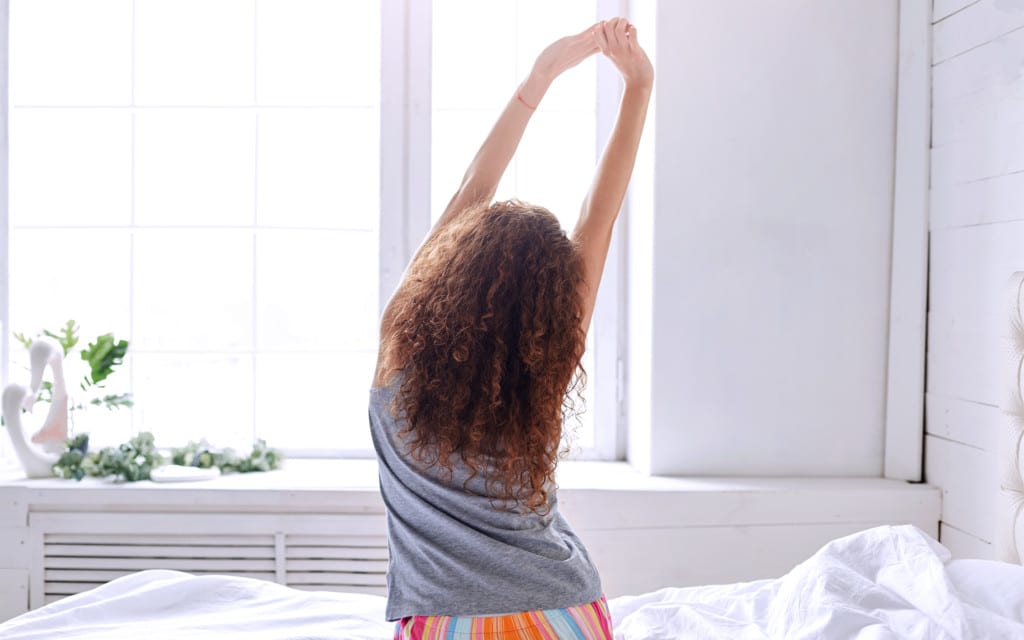
Exercise promotes better sleep: Get more of it
So, is exercise the magic cure to all of your sleep issues?
Not necessarily. If you’re dealing with specific problems like sleep paralysis, certain kinds of sleep apnea, or nightmare disorder, then extra exercise won’t cure everything that ails you. There’s a chance that you’ll need other forms of treatment too.
However, if you’re having difficulty sleeping because of problems with your circadian rhythm, or just high levels of stress, you should try hitting the gym.
Making exercise part of your regular routine could be an excellent way to boost your chances of a good night’s sleep. What’s more, even if your sleep quality only improves slightly, you’ll still be getting all the other benefits of regular exercise. There’s literally no downside to trying this type of treatment.
Using exercise for better sleep is an all-reward, no-risk solution.
Siestio. Sleep Matters.
General advice disclaimer
This article contains general tips and advice. However, no diet or exercise program should be started without consulting your physician or other industry professional first. For more information read our full disclaimer here.

